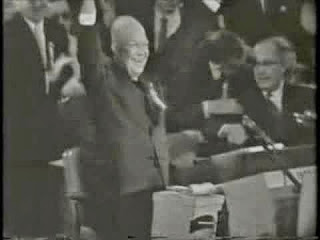 |
| Source:BookTV- U.S. Senator Robert C. Byrd (Democrat, West Virginia) talking to CSPAN's Brian Lamb in 1989. |
Source:
The Daily Times
"In 2005, Sen. Robert Byrd (1917-2010) appeared on Book TV to talk about his memoir, "Robert C. Byrd: Child of the Appalachian Coalfields." The book covers Sen. Byrd's life from his childhood years in Stotesbury, WV, through to his election to an eighth term in the U.S. Senate in 2000 (he was re-elected in 2006 for a ninth term). This event was hosted by the National Archives in Washington, DC."
From
BookTV
Robert Byrd certainly had his flaws like once being a member of the Ku Klux Klan, which he later renounced, but what I respect most about Senator Byrd was his knowledge of the United States Congress and Constitution. Which is what missed most about him in Congress today.
Senator Byrd was a self-taught Appalachian West Virginian, who literally had to work for everything that he ever received in life. The definition of someone who comes from nothing is almost someone who comes from Appalachia. Perhaps especially West Virginia which might be the poorest and most underdeveloped state in the union, despite its beauty and natural resources, like coal.
You can say all you want about his Far-Right KKK bigotry of his early years and even into his fifties, which will always be part of his legacy, but he was a lot more than that and a very effective and excellent legislature.
Bob Byrd was a classical legislature and member of Congress, who viewed his role as either a Representative, or Senator, or Senate Leader, as his job to represent West Virginia the state he loved and represented for 56 years in Congress, to represent his state, because his state had so little.
What other Congressional members , the media and public, would call pork, Senator Byrd saw those infrastructure projects and pork, as tools to advance the state that he loved and represented in Congress, again for 56 years: six in the U.S. House and 50 in the Senate. Twelve years as Democratic Leader in the Senate alone. Six as Majority Leader and six as Minority Leader.
And Byrd was also what I could call at least a Classical Progressive: someone who didn’t want government to do everything for everybody (which is how Socialists tend to feel) but use government to help people in need and help people could couldn’t help themselves.
Even with Robert Byrd's KKK membership and beliefs that minorities weren’t equal and not deserving of the same rights and protections under the U.S. Constitution in his early career in Congress, Bob Byrd was always a Progressive. Not that progressivism is about bigotry, because of course it isn’t, but he always believed that government could be used as a force for good not to manage people’s lives for them, because again he wasn’t a Socialist.
Senator Byrd as a West Virginia Progressive, believed government could be used to help people in need in and outside of West Virginia. And use to empower people to get themselves on their own feet. With things like infrastructure, education, job training and a real safety net for people who truly need it. People who didn’t have the skills and education to financially support themselves. Who needed short-term assistance to get those skills and help them get those skills. So they could eventually make it on their own. So in this sense at least, Senator Byrd was one of the best Progressives to ever serve in Congress.











